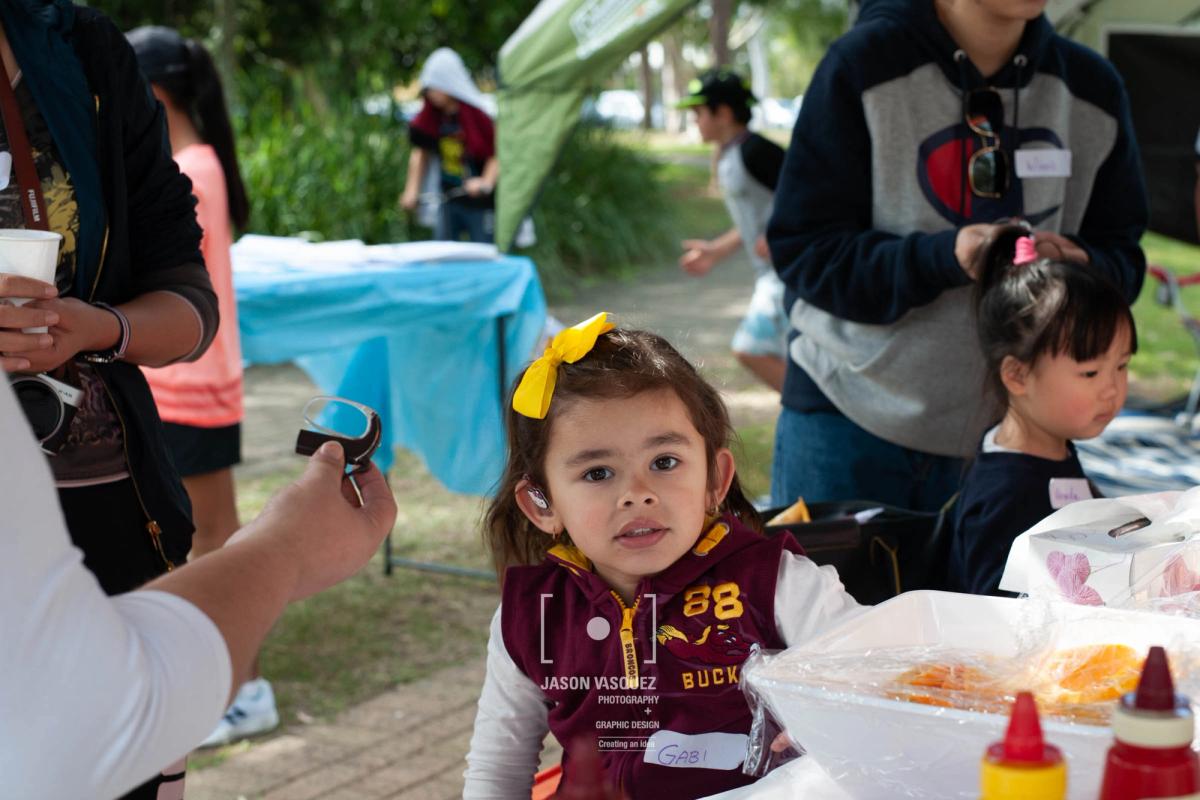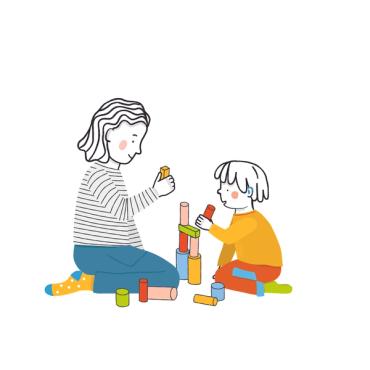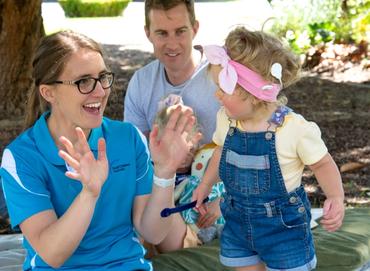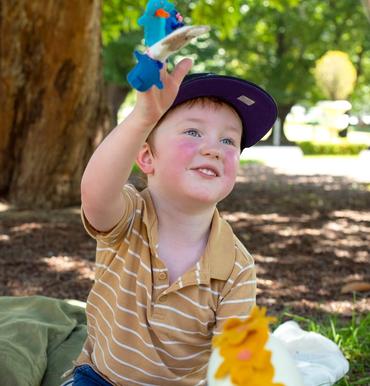Early childhood development - building foundations...
A child’s early years are a critical period for communication, language, and social-emotional development and lay crucial foundations for future learning and forming of identity.

Over the last few decades, research has shown how a child’s brain is geared up for learning. Children’s brains grow rapidly from birth to eight years, making this the opportune time for developing brain pathways for learning. The care, relationships, and opportunities children have in the early years have a profound impact on their long-term learning and development.
Early experiences affect a child’s learning outcomes and life opportunities in numerous ways, including:
- the development of cognitive functioning
- the ability to experience, express and manage emotions
- the capacity to form warm, secure and fulfilling relationships
- the establishment of their identity and sense of belonging
- the ability to explore and learn about themselves and their world.
The early childhood period is particularly important for children who are deaf or hard of hearing, whose challenges in communication and language development have been widely researched and reported.
More than 90 percent of deaf babies are born to hearing parents, most of whom have had little or no experience with how deafness impacts a child’s communication and language development. Many parents find it challenging to understand the communication needs of their deaf child and to foster interactions that lead to strong language outcomes.
What things can affect my child’s language development?
Early childhood research has found that deaf children’s language development is greatly influenced by several factors, including:
- early identification of their hearing loss
- early fitting of assistive listening devices, such as hearing aids or cochlear implants
- commencement in a high-quality, family-centred early intervention program, preferably within the first few months of life.
Family-centred early intervention supports children’s development by building on families’ strengths and skills and by encouraging positive interactions, active participation, and advocacy for their children. We know that when families and communities collaborate in positive ways, a deaf child’s capacity to achieve their learning potential is significantly enhanced.
Other important factors affecting a young deaf child’s developmental outcomes are the level of family involvement in their child’s early intervention program and early childhood activities and the parents’ and caregivers’ communication skills. These skills include the use of gestures, facial expressions, body language and attention-getting strategies that support language input and enhance the quality of parent-child interactions.
The sooner parents can communicate effectively with their deaf or hard of hearing child, the better the outcomes. Therefore, it’s important the whole family feels comfortable communicating with each other, and that the surrounding language environment is rich, rewarding, and meaningful.
Why choose a bilingual language approach?
With the rapid advances in hearing aid and cochlear implant technology and access to high-quality audiological support, young deaf children are provided with enhanced opportunities to develop spoken language. However, there is also strong evidence that a bilingual approach, incorporating a spoken and a signed language such as Auslan, provides significant benefits for a deaf child’s language and intellectual development at critical stages, irrespective of their degree of hearing loss.
Immersing a very young deaf child in a bilingual environment early in their development provides a ‘safety net’ for the acquisition of at least one strong language for future learning. If a child’s first language (whether signed or spoken) can be acquired within normal developmental milestones, there’s a much greater chance they will be able to use their language skills to achieve their highest potential. In turn, they will have a greater chance of accessing a wider range of educational and vocational opportunities.
Parents and caregivers play a major role in ensuring their young deaf or hard of hearing child has the best opportunities to develop to their full potential and gain a strong identity. While this may seem like a daunting task for families at first, the journey is richly rewarding.
Handy hints and links to find out more...
Families and caregivers have the biggest influence on their children’s early learning and development. You can make a big difference to your child’s future by establishing a warm, caring relationship with them.
You can also help by providing opportunities for your child to develop a sense of belonging, such as attending local community and cultural events.
Early childhood development is often described as a series of milestones children reach, such as starting to crawl or saying their first word. These are based on time-frames in which these things occur in typically developing children. However, it’s important to remember that every child is unique and may reach milestones at a different age. If you have concerns about your child’s development, seek advice from your healthcare professional.
Healthy childhood development is also supported by good nutrition. Healthy food provides the nutrients and energy your child needs to grow and develop, and healthy eating patterns started in the early years can support lifelong healthy eating habits.
Physical activity is also vital to your child’s health. It fosters the development of movement skills, co-ordination, creativity and thinking. Aim to give your child plenty of opportunities for active indoor and outdoor play.



